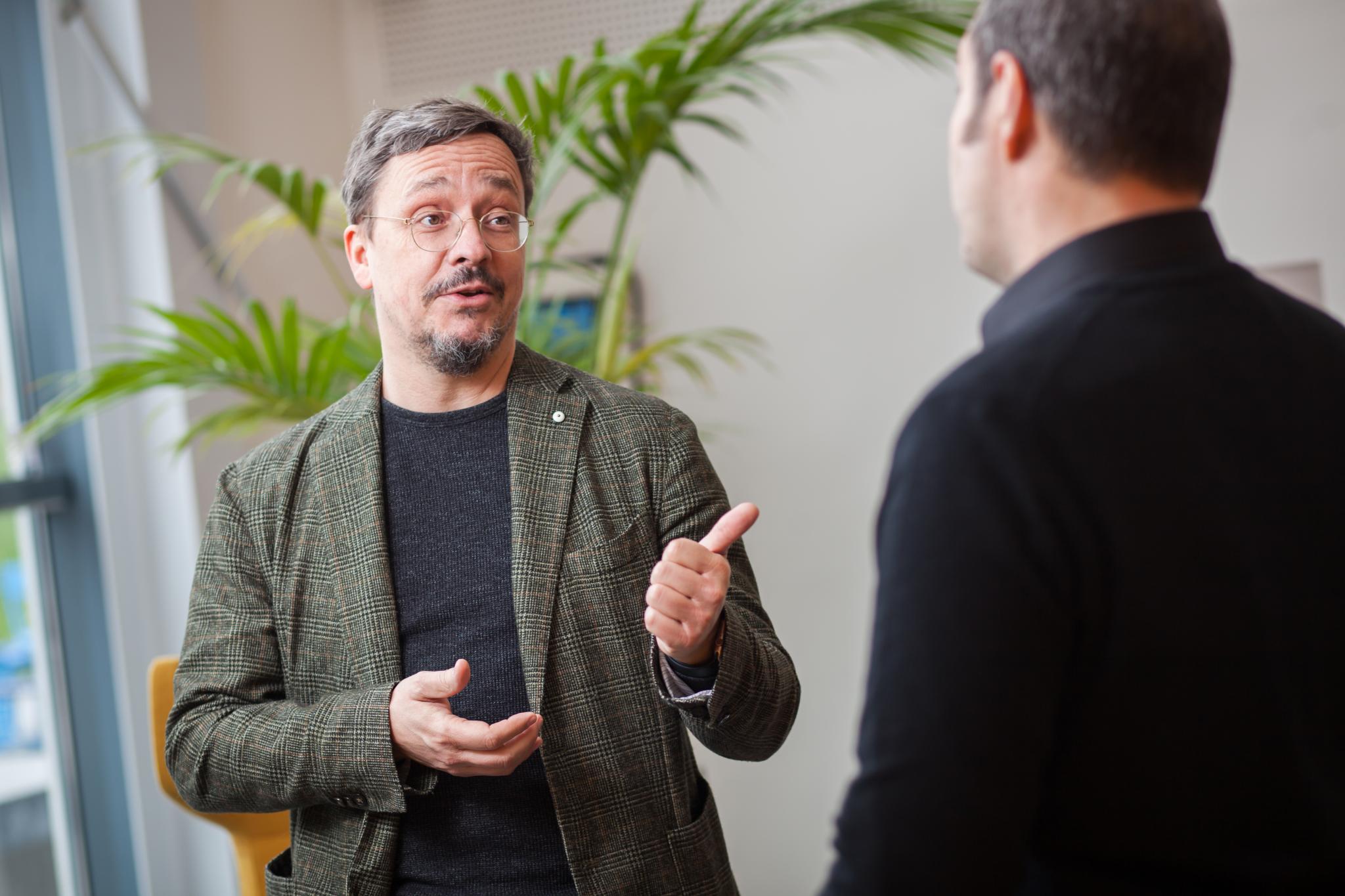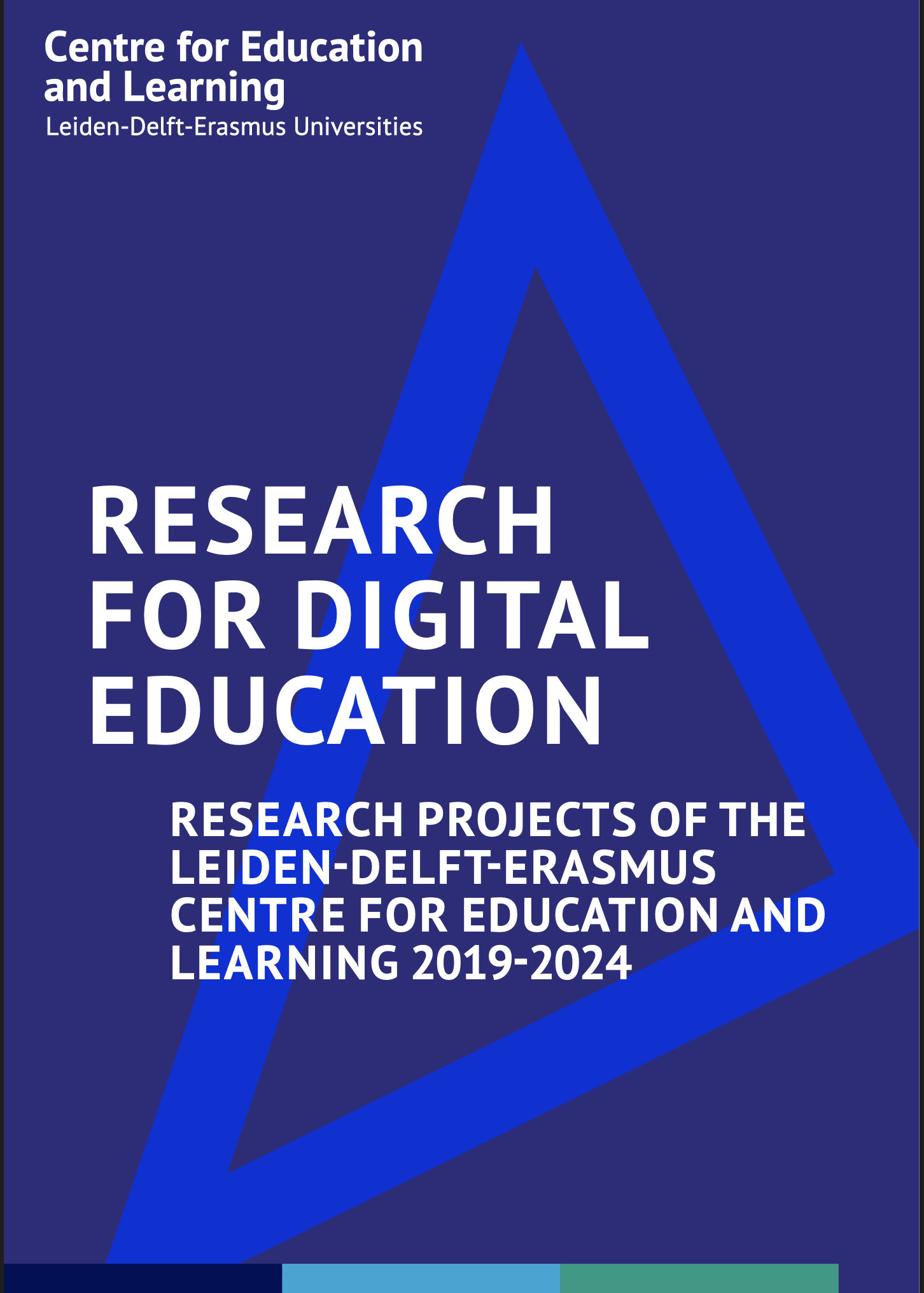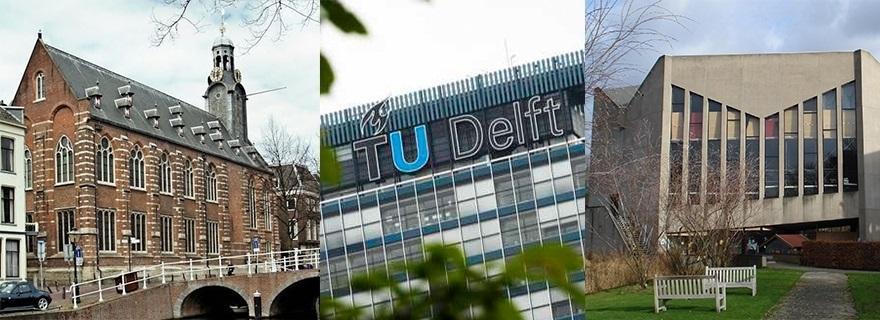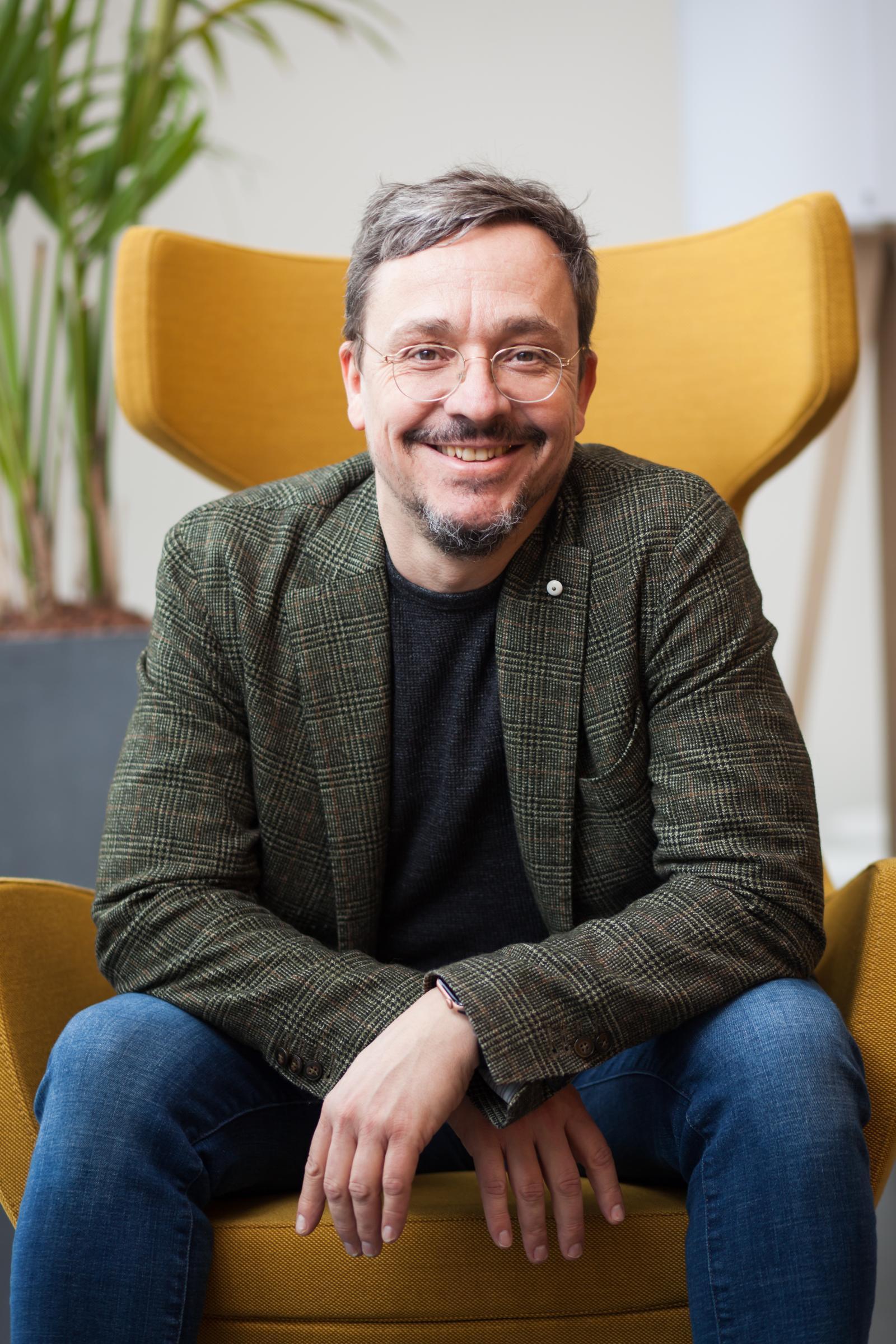
Wat will be the role of educators in the future if AI can give every answer and complete assignments? And what does that mean for learners? We asked Professor Marcus Specht, outgoing director of the Leiden-Delft-Erasmus Centre for Education and Learning. A look back at 10 years of working together in educational innovation.
The Leiden-Delft-Erasmus Centre for Education and Learning started as a network for training and knowledge exchange and, under Specht's leadership, grew in recent years into a research centre focused on digitalisation and virtualisation of education and digital skills.
How important was the multidisciplinary context of Leiden-Delft-Erasmus here?
Specht: ‘The digital transformation of education, of course, holds a technical issue: what can a particular new technology do, and how to design it? But it is precisely the collaboration of different disciplines, engineering as well as alpha, beta and gamma sciences, that is important when investigating what works, why and how. For the Centre for Education and Learning, it was therefore really of great value to operate in the Leiden-Delft-Erasmus context'.
PhD students crossing borders
Collaboration was also important for the many PhD students who found a place at the centre. Specht: 'For example, an educational psychology researcher working on goal setting with AI collaborated with computer scientists from Delft to build variations of a chatbot to study. Another example: a PhD student on programming skills from the Leiden Institute for Advanced Computer Science collaborated with computer scientists and a Human Computer Interaction researcher in the faculty of Electrical Engineering, Mathematics and Computer Science Delft.'
 'Or a study on reading comprehension combining insights from educational psychology research at the Erasmus School of Social and Behavioural Sciences in Rotterdam with the perspectives from Industrial Design in Delft.'
'Or a study on reading comprehension combining insights from educational psychology research at the Erasmus School of Social and Behavioural Sciences in Rotterdam with the perspectives from Industrial Design in Delft.'
The results of the Centre for Education and Learning's research have been compiled in a publication 'Research for Digital Education'. > Download
The question of what is a good way of teaching and learning is different for each university'
Teaching methods at the heart of the university
The intention to cooperate also brought challenges. Specht: ‘Where three universities come together there can also be delays. It is not easy to develop a shared vision when it comes to digital transformation in education. How quickly and in what way do you embrace an innovation, what does it mean for academic education, after all, the core of your university? The question of what is a good way of teaching and learning is different for a university of technology than for a classical university or a business school.'

Where, in particular, is the added value in collaborating on technological education innovation?
Specht: ‘That's in the shared challenges, developments like generative AI, that every university faces. What does this mean for lecturers, for their teaching methods and the role they have, for examinations? Will lecturers soon become coaches if AI can generate every answer and create every brief? Where it is now about authenticity of text and images, AI will soon be able to do complete assignments.'
 New era: Artificial Intelligence as a co-player in learning and teaching
New era: Artificial Intelligence as a co-player in learning and teaching
Specht draws a comparison with the situation of the corona pandemic outbreak: ‘Suddenly, we had to switch at an unprecedented rate. We succeeded and online education is here to stay. But what impact this digitalisation of teaching and learning ultimately has, we have not been able to properly investigate. Now, with generative AI, such as ChatGPT, we seem to be facing a similar moment. What is technically possible is one thing, what impact it has on the learner is another question.'
Specht continues his career at Research Center for the Higher Education of the Future - FernUniversität in Hagen and remains attached to the faculty of Electrical Engineering, Mathematics and Computer Science at TU Delft one day a week. The legacy of the Centre for Education and Learning, especially it’s network of education professionals will remain.
Specht: ‘This network is important and we have mapped it with a Nexus report that can be found on the CEL website.’ Rotterdam's RISBO, Delft Teaching Academy and Leiden Learning and Innovation Centre and ICLON are also part of it. This is where teachers can go who want to study educational innovation and digitalisation.'
AI as an intelligent agent in the educational process has major implications for a teacher's role.'
As a final question, what does Specht see as the biggest challenge when it comes to future digital developments in higher education?
'Teachers are busy people. They delve into a problem the moment it arises. But if AI soon also joins the educational process as an intelligent agent, it will have very big implications for a lecturer's role. That step seems far away but is coming fast and calls for research into its implications for everyone in that educational process.'
Lucas van Vliet, Dean EWI TU Delft
Marcus Specht, with his enthusiasm and drive, was the driving force behind LDE-CEL. He saw at a very early stage how digitization will permanently change higher education. With his research, he laid an academic foundation for this development. He leaves behind a well-run group that is excellently positioned to further realize this vision."
Wim van den Doel, Dean LDE
The Center for Education and Learning has strengthened the connection between the universities in the field of educational innovation. It has created a network that is very valuable for anyone concerned with digitization in education. For which many thanks to Marcus Specht and his team. With the rapid developments in this field, cooperation is essential."

